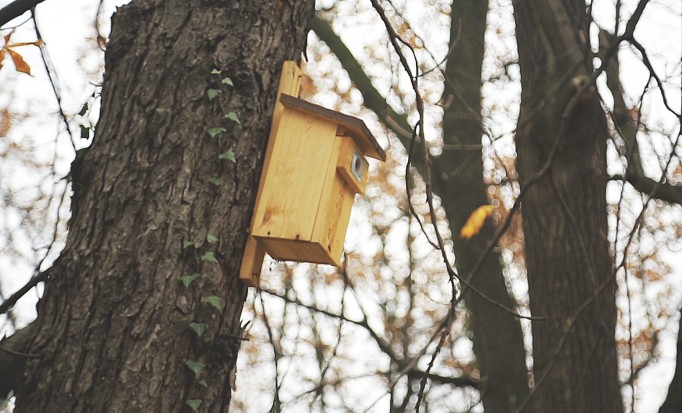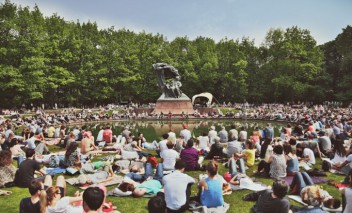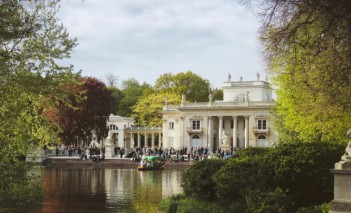Eco-friendly bird houses for the gardens’ residents

A dozen nest boxes for birds have been placed in the Royal Łazienki gardens. Soon, insect hotels will also be installed. The miniature wooden houses complement natural hollows and they are part of the Museum’s environment protection programme aimed at preserving biodiversity.
The bird houses have been hung on the trees in the newly revitalized garden, between the former Inn building and the Myślewicki Palace. They will function as a shelter and nesting place of sparrows, tits, starlings, jackdaws, nuthatches and most likely also tawny owls and hoopoes.
The bird houses will complement the hundreds of natural hollows located in the eldest trees of the Łazienki gardens. They have been introduced to improve the living conditions of birds, as their existing habitats in the city are shrinking. The number of bird houses – which has been consulted with ornithologists – takes into account the size of the areas intended for individual species, in order to prevent distress, fights for territory and overpopulation among birds.
Insect Hotels
In spring, the newly revitalized garden will also feature insect hotels, which will serve as shelter for insects including green lacewings (chrysopidae), red mason bees (osmia bicornis), scissor bees, leafcutter bees (megachile) and Heriades bees. The insects will pollinate flowers that will produce fruit, which will in turn provide nourishment for birds and small mammals.
Bird houses and insect hotels will also be used during museum lessons. The participants of classes will stroll along the ecological, educational trail and see what types of the miniature wooden houses are inhabited by the respective bird and insect species. They will also learn why these structures have different sizes and shapes, and how they provide shelter for the animals.
Urban Biodiversity
The wooden mini houses are the fruit of the programme "Urban Biodiversity – Protection, Education and Revitalization in the Historic Royal Łazienki Garden", which has received financial support from the National Fund for Environment Protection and Water Management. The goal of the project is to preserve biodiversity of the Łazienki gardens, which – being located in the centre of a large city – are an exceptional example of coexistence between culture and nature in one place.





